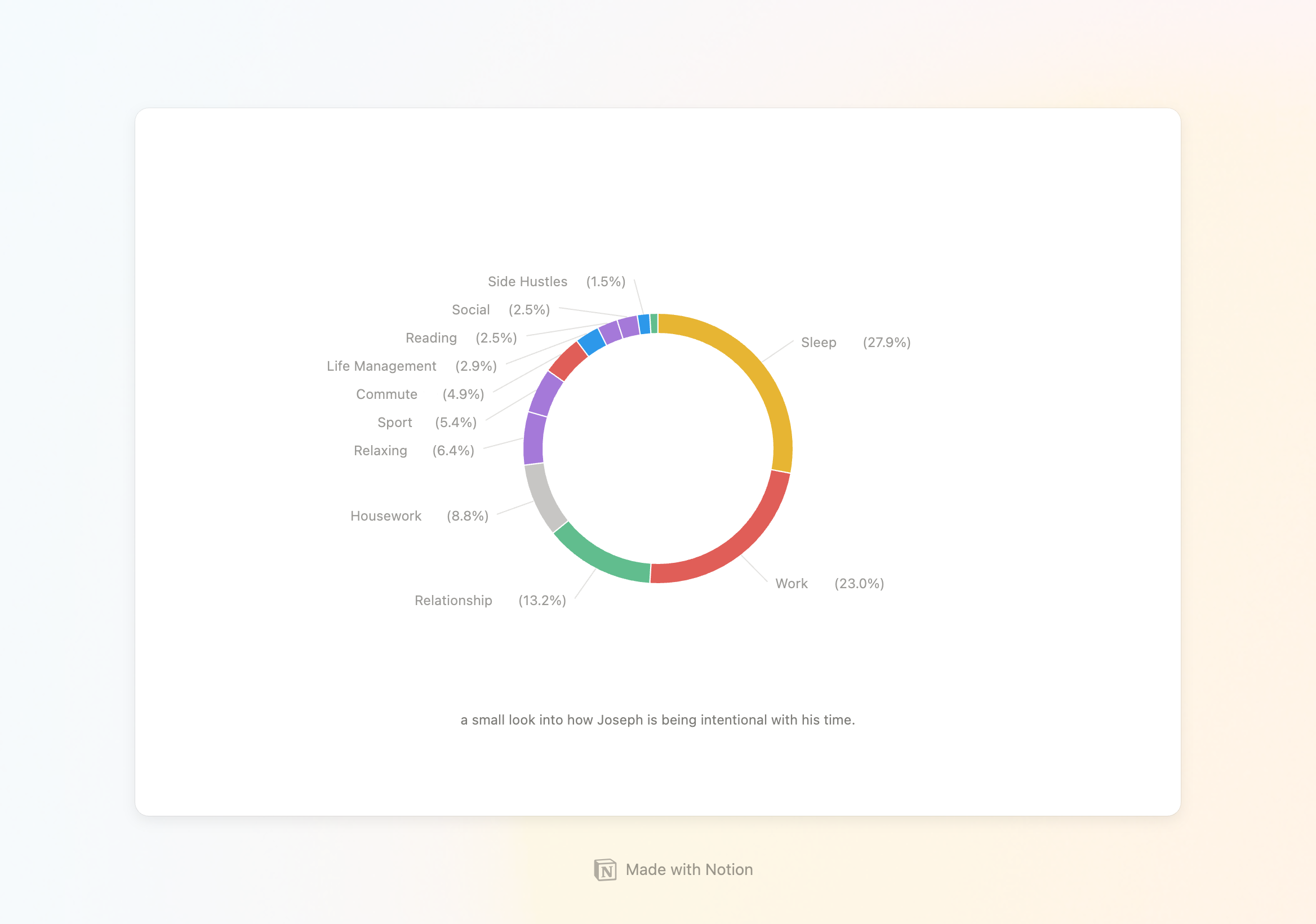Above you can see a snapshot from a week of me logging my intentionality using my process in Notion (template here). This visual representation serves as both a mirror and a compass for my weekly time investments.
Every Sunday, I grab a coffee and dedicate focused time to this reflection process. It's become a sacred ritual of sorts, where I ask myself two fundamental questions: "Are you happy with this?" and "What do you want to see move up next week?" This weekly check-in isn't just about numbers and percentages – it's about ensuring my time aligns with my values and current life priorities. The process enables me to be fluid, reflect deeply, and continuously push for meaningful improvements.
One of the most profound realisations I've had through this journey is understanding the concept of time as a zero-sum game. You cannot magically create more time or simultaneously improve all areas of life. Every increase in one area necessarily means a decrease in another. This reality check has been crucial in developing a more mature approach to time management. Instead of fighting against this limitation, I've learned to embrace it and use it as a framework for making intentional choices.
Looking at this week's data, three clear priorities emerge:
- Sleep (27.9%) - Recognising that good rest underpins everything else
- Work (23.0%) - Maintaining professional commitments and growth
- Relationship (13.2%) - Investing in the relationship with my partner
This week presented an interesting challenge. I needed to make adjustments to accommodate two pressing areas: Sport and Housework. The decision to temporarily reduce time from Relationship activities wasn't made lightly, but it was made consciously. The housework had reached a point where postponing wasn't viable, and maintaining physical health through sport is a non-negotiable aspect of my well-being.
The beauty of this system lies in its flexibility and the broader perspective it provides. By zooming out to view longer-term patterns, I can make informed decisions about short-term trade-offs. The overall perspective (seen in the second chart) reveals that Relationship consistently ranks at the top of my time investments. This broader view gave me the confidence to make a temporary adjustment without feeling guilty or anxious about the change.
However, it's crucial to emphasise that this system is a guide, not a rigid framework. Life isn't purely mathematical, and relationships especially require nuance and flexibility. When other people are involved, their needs, schedules, and priorities become part of the equation. True intentionality isn't about slavishly following percentages – it's about being mindful of our choices and their impacts.
This approach has transformed how I think about time management. Instead of viewing it as a constant struggle to fit everything in, it's become a dynamic process of conscious choice-making. Each week brings new challenges and priorities, and this system helps me navigate them while maintaining sight of my longer-term goals and values.
The most valuable outcome hasn't been perfect time allocation – that's probably impossible. Rather, it's the developed ability to make conscious choices about my time investments and understand their trade-offs. When I choose to spend time in one area, I'm now fully aware of what I'm choosing not to do, and I can make peace with those decisions because they're intentional rather than accidental.
Read more on this here:
- https://medium.com/disruptive-leaders-journal/being-intentional-289cf2006042
- https://medium.com/@hillmiester/the-time-economy-mastering-your-most-precious-resource-9b238b97042c
My Templates here:

.png)